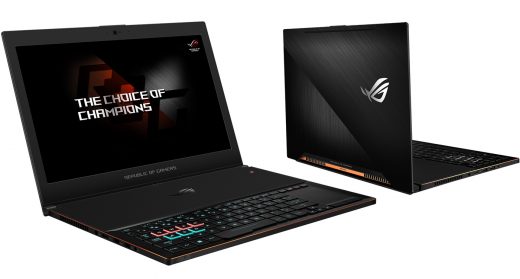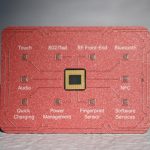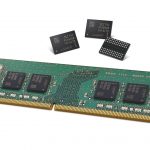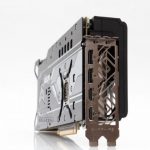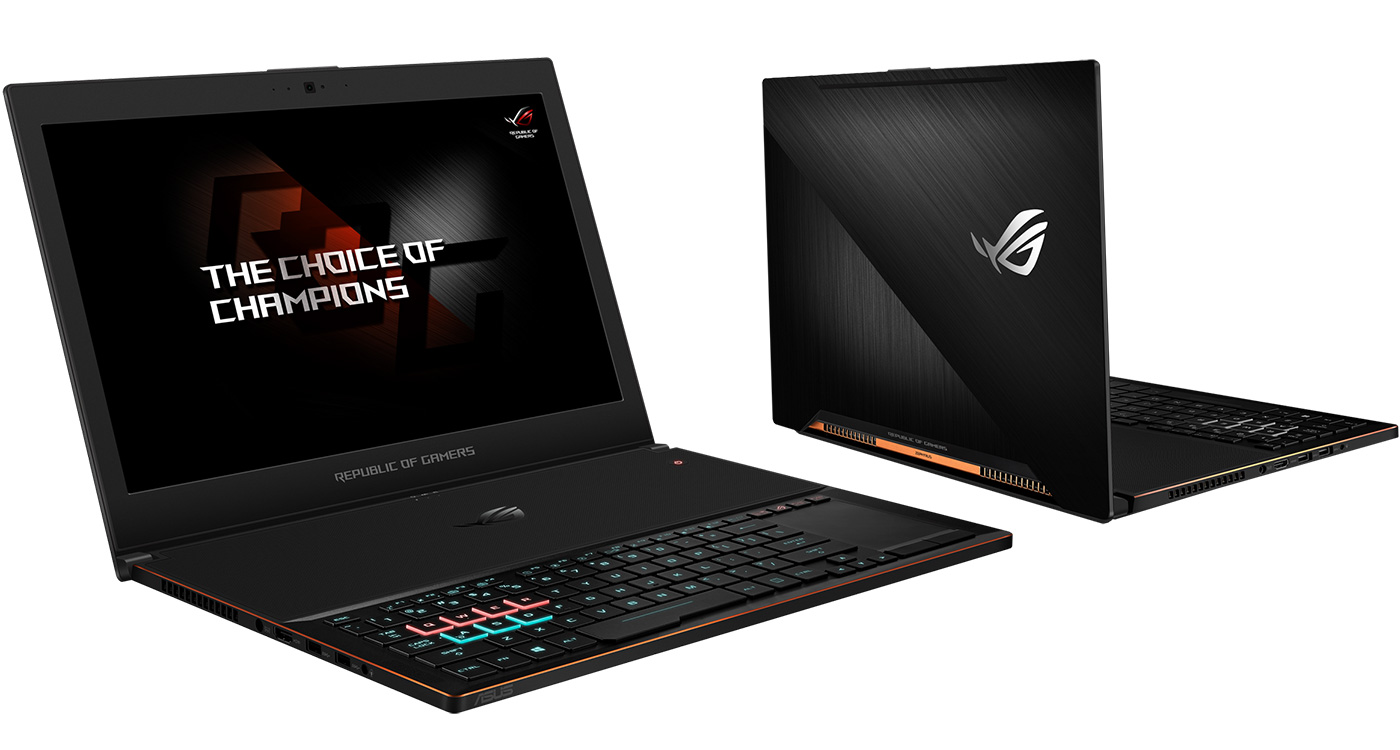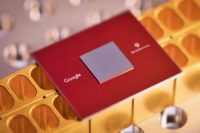ASUS crams a GTX 1080 into a 16.9mm-thick laptop
Of course, another one of NVIDIA’s pledges was to make devices three times as thin as existing devices. Part of that thinness is down to a new thermal design that, when the laptop is open, pushes out a small exhaust port on the underside. That, ASUS promises, will ensure that your lap won’t get fried when you use this away from your tabletop. Thankfully, it doesn’t compromise the device’s looks too much, and it’s sturdy, sleek and generally menacing in a way that seems appropriate for such a machine.
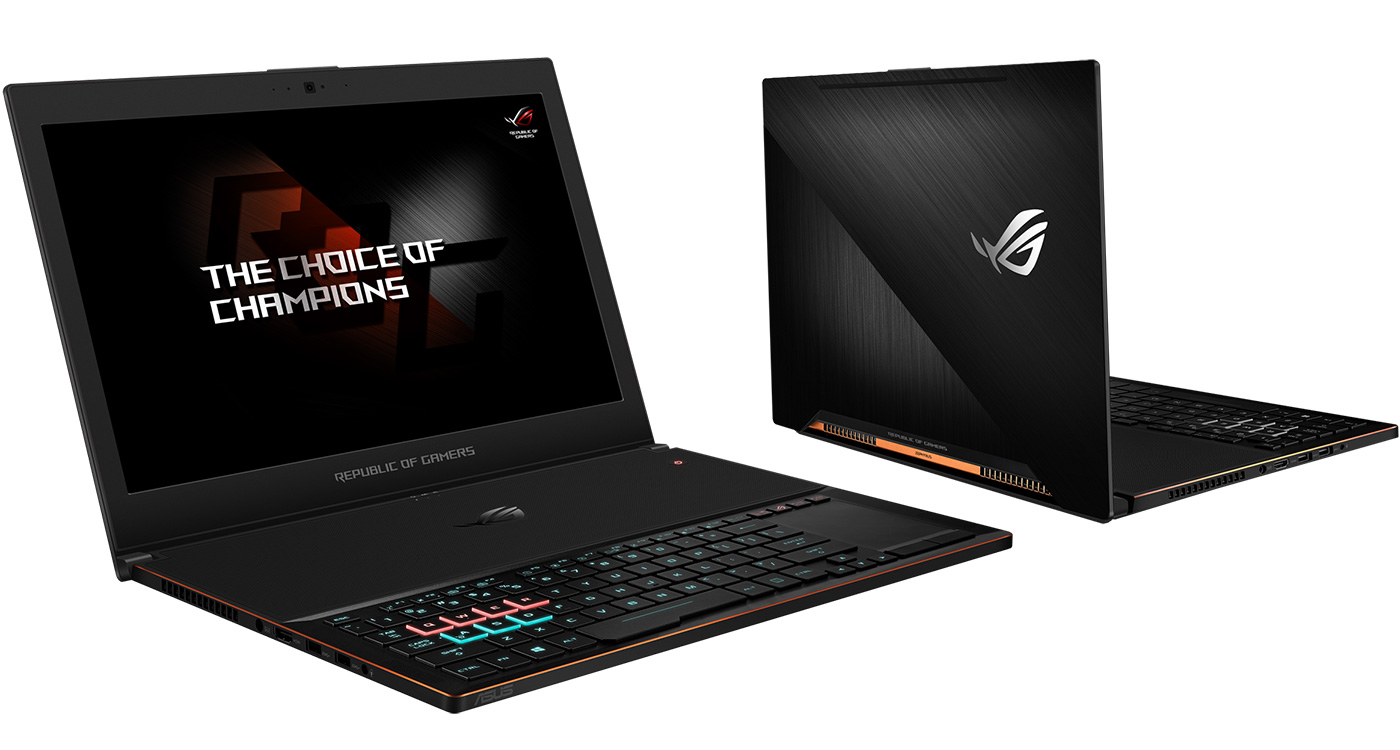
Rounding out the spec list, the Zephyrus will ship with Intel’s seventh-generation Core i7 7700HQ CPU and up to 24GB RAM. It’s also packing a four-cell, 50Wh battery, although the company has been hesitant to talk about how long it’ll live away from a wall socket. Here’s a hint: not long. Display-wise, you’ll be staring into a 15.6-inch full-HD panel with an anti-glare coating and NVIDIA G-Sync. And if you’re on your way to an esports tournament, you should know that the device will weigh 2.2kg (4.85 pounds) in your bag with the battery.
Since Zephyrus ships with the Windows 10 Creators Update, it will take advantage of both Windows Game Mode and Beam’s streaming service. ASUS didn’t say much else about the software features beyond that you will be able to customize the Zephyrus lighting scheme to even isolate the WASD and QWER keys. Speaking of the keyboard, it’s certainly not designed for essay-writing, with spongy keys and almost no travel, at least in the demonstration unit. The trackpad, too, is pretty clever and is capable of pulling double duty as a numeric keypad when you need to do some math on the fly.
ASUS ROG also wanted to talk about how its laptops aren’t simply for gamers with large wallets when fans of different genres have different needs. A MOBA gamer, for instance, may not need as fast a display as one who’s seriously into FPS. Which is why the company has unveiled a pair of Strix-branded laptops that are tailored specifically to the needs of those two genres.
The ROG Strix SCAR Edition is engineered to give FPS gamers a vital edge, with Intel Core i7 processors, NVIDIA GeForce GTX 10 series and an ultrafast, 120Hz, 5ms display. Meanwhile, the ROG Strix Hero Edition is designed for MOBA fans who are geared toward esports, packing Intel Core i7 processors, NVIDIA GeForce GTX 10 Series graphics and a 120Hz wide-view display with rich color fidelity.
As for pricing and availability, ASUS has yet to let us know what the plan is, although we can imagine that all of the aforementioned laptops will cost a pretty penny. Still, can you really put a price on the sort of performance you’re going to squeeze out of this thing?
Click here to catch up on the latest news from Computex 2017!
It appears that ASUS has been one of the principal beneficiaries of NVIDIA’s Max-Q design program to shrink high-performance gaming laptops. The initiative was announced earlier today, with NVIDIA promising to help laptop makers build devices with powerful internals like the GTX 1080 without the heft. NVIDIA’s promise is that the first generation of Max-Q laptops will be three times as fast as their immediate predecessors.
(44)

